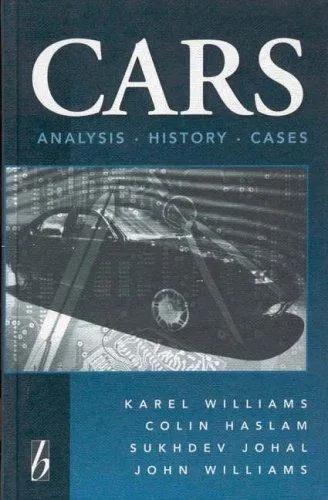
Car manufacturing involves the movement of large numbers of heavy, awkward objects incorporating some 20,000 parts, through a large number of short cycles. As to be expected the constant flow of the processes involved is disrupted by both the inherent complexities of production and those of market restrictions. This study, a unique blend of analysis, history and case studies, not only characterizes the essence of car manufacturing but also explains the links between production, market conditions and financial results and constraints. At the same time, it challenges fashionable views on the car industry and rejects the current preference for facile dichotomies (e.g. mass production vs. lean production; Japan vs. America; freedom vs. regulation). However, it also shows that the failure of BMC, the largest failure in the industry to date, cannot be attributed to its incomplete adoption of the best system. Ford and Toyota were exceptionally successful in their production organization but their solutions had more in common than is generally acknowledged, and those solutions also required exceptional market conditions for their successful implementation.
Karel Williams
Karel Williams is a prominent British sociologist known for his groundbreaking work on the financialization of everyday life. His influential book, "Financialization and Strategy: Narrative and Numbers," explores the impact of financial markets on society. Williams' writing style is clear and insightful, making complex concepts accessible to a wide audience.